- Front Case Fan Not Spinning: [3 Proven Fixes That Work - June 22, 2022
- Is 60 Degrees Celsius Hot For A CPU In 2022? [Must-Read] - June 7, 2022
- How To Handle CPU Temps Jumping: A Definitive Guide [2022] - June 2, 2022
Does CPU voltage affect RAM? No, the voltage of the CPU does not affect the performance of the RAM. This is because there are different voltage domains for the RAM and CPU.
These are the vCore and vDIMM respectively. Both are adjustable separately within your computer’s BIOS.
But there are still consequences for the RAM when CPU voltage gets adjusted. Sometimes when a CPU gets overclocked, the RAM cannot keep up.
This means you may need to increase the voltage of the RAM to compensate. Altering component voltages requires careful attention so that hardware limits aren’t breached.
This article will cover more details about the relationship between CPU voltage and RAM. We’ll show you what you need to know about both using a list of questions, including FAQs people are asking.
Here we go!
Contents
What Does CPU Voltage Do?
CPU voltage relates to the power supply providing electricity to the CPU. It’s known as vCore or the CPU core voltage.
The voltage determines the amount of power used by the CPU. This affects the heat it dissipates.
CPU speed also gets affected by the voltage. CPU speed can increase via overclocking. This means increasing the CPU voltage.
It’s possible within the hardware limits of your CPU. Here are extra details on how CPU voltage helps with overclocking.
Does Voltage Matter For RAM?
Yes, it does. You’ll want to ensure that the RAM voltage is suitable for the CPU. If it’s excessive, the CPU memory controller may get forced to overclock.
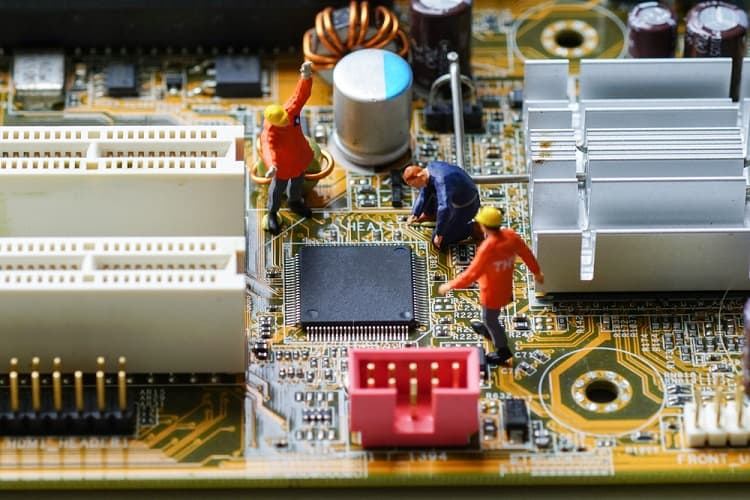
Sometimes this will work without consequences, but this is often not the case. As a result, system stability can decline.
The CPU isn’t the only consideration when it comes to RAM voltage. You’ll also need to check the motherboard to ensure component voltage is within its limits.
Here’s a suggested read: Does CPU Virtualization Increase Performance.
Does Voltage Affect RAM Performance?
Yes, it can. When asking, ‘does CPU voltage affect RAM?’, the RAM voltage is relevant. A powerful CPU won’t operate efficiently without decent RAM.
When RAM is at a lower voltage, stability increases because heat output reduces. But the downside of this is lower performance. The RAM will be running at a slower speed.
The RAM will work faster at a higher voltage, but other components may not support it. We think RAM voltage should strike a balance between your needs and PC capabilities.
Does CPU Voltage Affect RAM?
The vCore voltage is a separate setting in the BIOS. The vDIMM setting covers RAM voltage.
But if you overclock the CPU, you’ll need to ensure the RAM can keep up. The voltage you choose for the CPU won’t impact the RAM itself.
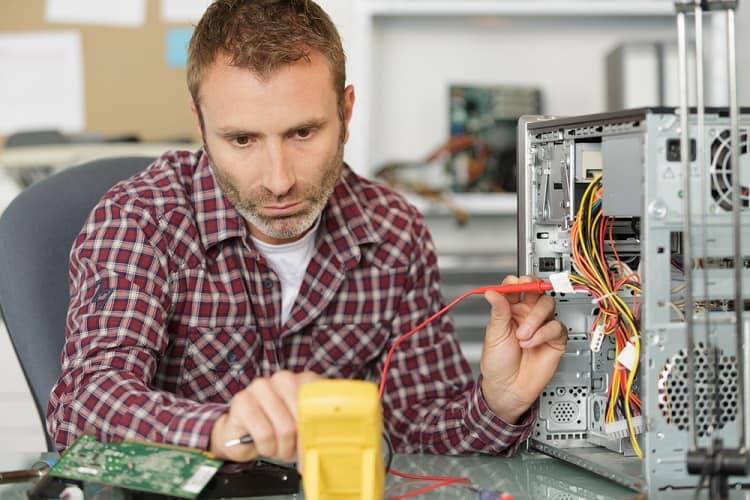
But if your computer’s CPU runs faster, more demand gets put on the RAM. I recommend testing small voltage increases to the CPU to see how your memory performs.
Then you can find an optimal setting. Overclocking your CPU can yield a 20% performance increase, so it’s worth attempting if you’re confident.
Does CPU Voltage Affect RAM Overclock?
No, not if you’re overclocking your RAM to increase its performance. By making the RAM operate quicker, your CPU will have extra support.
But this can only build up to a certain point. All computer components will have voltage limits. Once reached, further overclocking becomes unsafe.
In this scenario, we advise upgrading the components rather than adjusting them. Alternatively, you can change how you use your computer so the components are not in such high demand.
Suggested read: Does CPU Upgrade Require OS Reinstall?
Does RAM Voltage Affect CPU?
Yes, it can. If the RAM voltage is too low, the CPU won’t have enough memory. This is even more the case if the CPU gets overclocked.
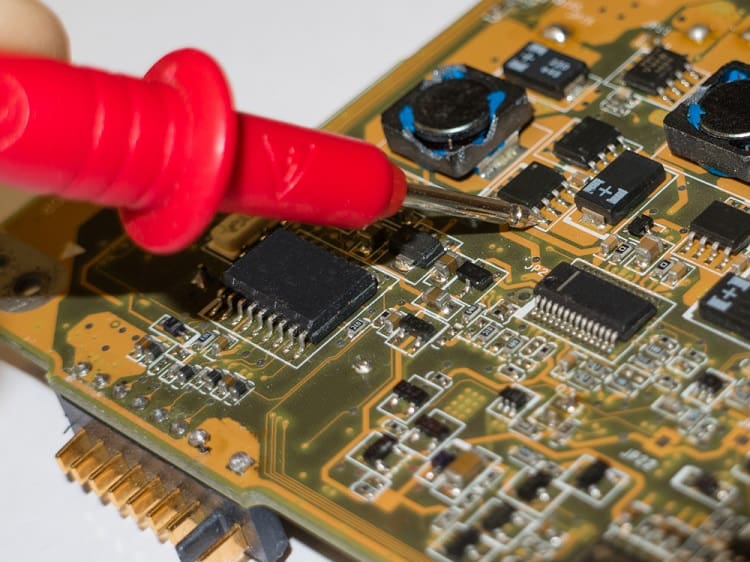
If the RAM voltage is too high, the CPU may not support the faster speeds.
Also, the RAM could burn out or stop working. If this happens, your computer will not function properly.
Then you’ll need to replace the RAM before the system works again. I’ve found it pays to be cautious when changing RAM voltage.
And don’t miss checking out how to know if your CPU is dead.
Are CPU Voltage And RAM Voltage Related?
In some ways. vCore is the CPU voltage, and vDIMM is the RAM voltage. In the BIOS, they are distinct from each other.
On the motherboard, these settings affect different components. But when adjustments get made to one of these settings, it shouldn’t be too different from the other.
If either the RAM or CPU is too fast or slow, the other will have issues. In this way, the two settings relate. But you can make changes to them independently.
Is Higher CPU Voltage Better?
Taken by itself, yes. Increasing the CPU voltage will make it more reliable when overclocked. But there is only so far that voltage adjustment can go. Too high, and your CPU will overheat or fail.
We’ve found the key is to find a happy medium. This is where you increase your CPU speed without pushing the circuitry to failure.
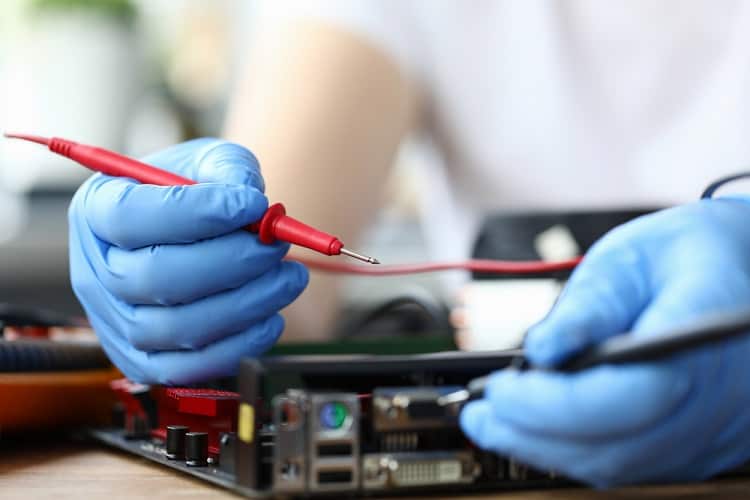
It’s also worth bearing in mind that a CPU with a higher voltage has some risks, which we’ll cover in the FAQs.
Does VCore Affect RAM?
vCore is a technical term referring to the CPU core voltage. As we’ve discussed, it can affect RAM indirectly.
If the RAM is too slow for the CPU’s requirements, the higher voltage will go to waste. No performance gains will occur. But if you increase the vCore appropriately, you’ll enjoy increased performance.
FAQs
How Do I Change My CPU Voltage Manually?
If you enter the BIOS, you can use the navigation menu to locate CPU settings. In this section, you’ll find an option for adjusting the CPU core voltage. It will change in small increments.
We recommend you stick to these increments for testing purposes. Here is a video demonstrating a general process. Your BIOS will differ, but this gives you an idea of how to do it.
Does XMP For RAM Affect CPU?
An XMP profile relates to the RAM. It’s an Intel technology that enables memory overclocking in a streamlined way. It’s now popular with memory manufacturers. It’s often customized for the RAM installed in your machine.
XMP profiles need a compatible CPU, motherboard, and RAM setup. The CPU needs to support increased memory speeds, as does the motherboard and RAM. Enabling XMP without checking the other components are compatible will negate any benefits.
What Are The Dangers Of High CPU Voltage?
If your CPU voltage is too high, then temperatures can rise. This can lead to heat build-up. If it doesn’t dissipate fast enough, your CPU can overheat. These are localized temperature changes, making them harder to detect.
At high voltages, the CPU can also make errors. An example is voltage misinterpretation. A 1 can get read as a 0 or vice versa. Even a single error like this can cause software failure. Most applications cannot tolerate these errors.
High voltages can also damage electrical components. This is true even when other component settings aren’t changed. If your CPU fails, your computer will be unusable until it’s replaced.
What Is Normal CPU Voltage?
I’ve found a typical range is 1.25v – 1.5v. This is because small changes in the voltage can significantly affect computer performance. The range may seem small, but even a 0.1v change is significant.

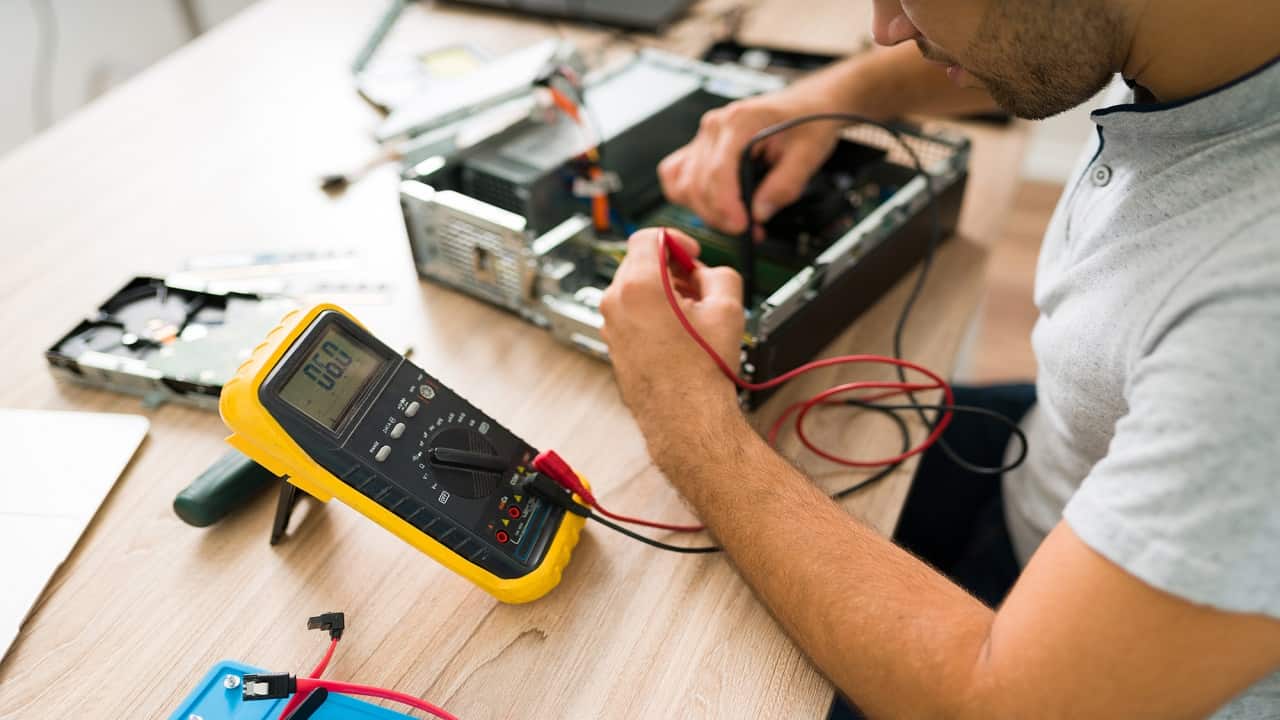
![Does CPU Matter For Streaming In 2022? [A Definitive Guide] Does CPU Matter For Streaming In 2022? [A Definitive Guide]](https://maximum-tech.net/wp-content/uploads/2022/05/Does-CPU-Matter-For-Streaming-150x150.jpg)
![Is Fortnite CPU Or GPU Heavy In 2022? [A Definitive Guide] Is Fortnite CPU Or GPU Heavy In 2022? [A Definitive Guide]](https://maximum-tech.net/wp-content/uploads/2022/05/Is-Fortnite-CPU-Or-GPU-Heavy-150x150.jpg)
![Does CPU Affect Download Speed for PCs? [2022 Full Guide] Does CPU Affect Download Speed for PCs? [2022 Full Guide]](https://maximum-tech.net/wp-content/uploads/2022/05/Does-CPU-Affect-Download-Speed-for-PCs-150x150.jpg)

![How To Know If CPU Is Dead? [A Comprehensive Guide 2022] How To Know If CPU Is Dead? [A Comprehensive Guide 2022]](https://maximum-tech.net/wp-content/uploads/2022/04/How-To-Know-If-CPU-Is-Dead-150x150.jpg)
![Best CPU for Minecraft In 2022 [7 Worthy Picks Reviewed] Best CPU for Minecraft In 2022 [7 Worthy Picks Reviewed]](https://maximum-tech.net/wp-content/uploads/2022/04/best-cpu-for-minecraft-150x150.jpg)